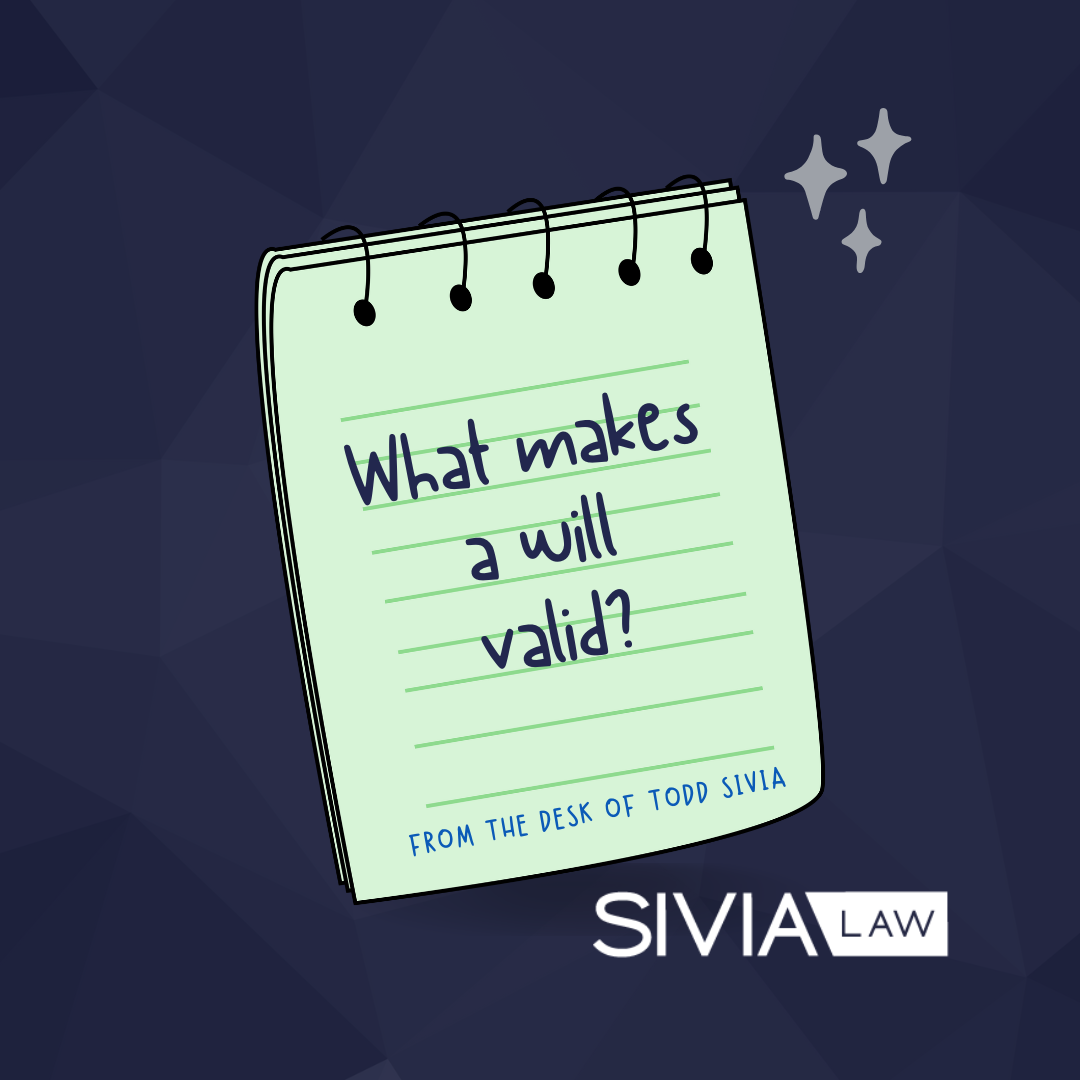What Makes A Will Valid?
Essential Elements to Consider

Recently, an article ran in Legal Newsline about a woman who passed in Arizona. Her body was found with a couple of post it notes, reading "I'm sorry, I don't have the tools for this. Beth [her best friend] gets everything" and "Also, sorry universe, thank you for the experience, maybe. -XO". Unsurprisingly, her 5 sisters challenged the validity of this in probate, and won. This begs the question:
What makes a will valid?
Creating a will is a crucial step in estate planning, as it ensures that your assets are distributed according to your wishes after your passing. However, for a will to be considered legally valid, certain fundamental elements must be present. Understanding these requirements will help you craft a will that is enforceable and reflective of your desires.
1. Legal Age and Mental Capacity
One of the primary requirements for a will to be valid is that the testator (the person creating the will) must be of legal age, which is typically 18 years or older. Additionally, the testator must possess the mental capacity to understand the consequences of making a will. This means they should be aware of the nature and extent of their assets, the natural beneficiaries of those assets, and the legal implications of their decisions.
2. Voluntary Intent
A valid will must be created voluntarily, free from any undue influence, coercion, or duress. The testator should make their decisions independently, without being pressured by others. This ensures that the will genuinely reflects the testator's wishes and intentions.
3. Written Document
While verbal wills are permissible in some jurisdictions under specific circumstances, a written document is generally required for a will to be valid. The will should be clearly written and should express the testator's intentions regarding the distribution of their estate.
4. Signature of the Testator
The testator's signature is crucial for the validity of a will. The signature should appear at the end of the document, affirming that the testator has read and agrees with the contents. If the testator is unable to sign the will due to physical limitations, they may direct another person to sign on their behalf, but this must be done in their presence and at their direction.
5. Witnesses
Most jurisdictions require that a will be witnessed by at least two individuals who are present at the same time and observe the testator signing the document. These witnesses must also sign the will, attesting to the testator's mental capacity and voluntariness. Witnesses should be disinterested parties, meaning they should not be beneficiaries of the will, to avoid any potential conflicts of interest.
6. Clear Intent
The will must clearly express the testator's intention to distribute their assets in a particular manner upon their death. Ambiguities or vague language can lead to disputes and potential challenges in probate court. It's important to be specific and detailed about asset distribution, guardianship arrangements, and any other significant decisions.
7. Compliance with State Laws
Each state has its own specific laws and requirements for what constitutes a valid will. It is essential to ensure that the will complies with the legal standards of the state where the testator resides. Consulting with an estate planning attorney can help ensure that all local legal requirements are met.
Conclusion
By understanding and incorporating these essential elements, you can create a will that is legally valid and accurately reflects your final wishes. At Sivia Law, we are equipped to guide you through the complexities of estate planning, ensuring that your will is both comprehensive and enforceable. Contact us today to secure your peace of mind and protect your legacy.
Interested in Working With Us?
If you need help with estate planning or any other legal concerns, we are here for you. Don't hesitate to contact our firm directly for assistance. Our dedicated team is ready to provide support and guidance to you and your loved ones during important life transitions.
Whether you're ready to schedule a strategy session to discuss your specific needs or if you're interested in exploring our wide range of complimentary guides and additional resources, we encourage you to get in touch with us.
With licensed attorneys and offices located in both Illinois and Missouri, we are well-equipped to serve clients in these regions. Reach out to us today and let us leverage our expertise and care to guide you through the legal process.
Helpful Guides
Begin your journey by taking advantage of our collection of complimentary guides.
Online Documents
Simple & Convenient, Cost Effective, Attorney Reviewed Documents.








